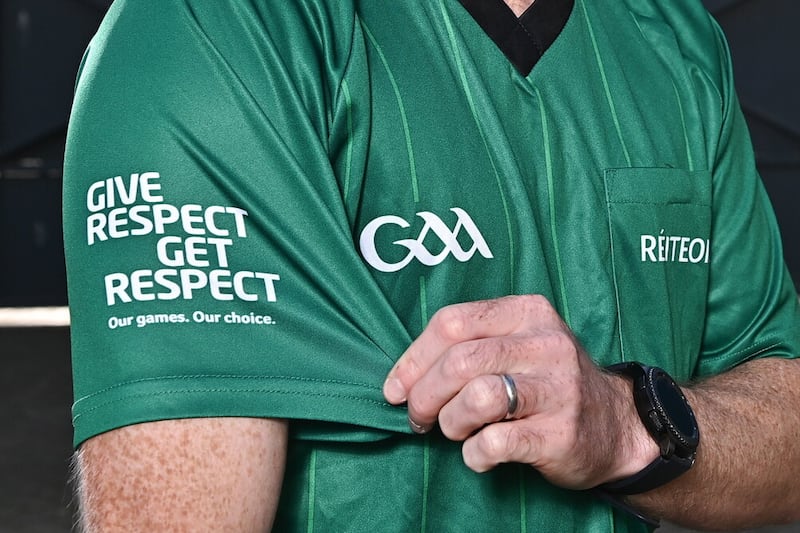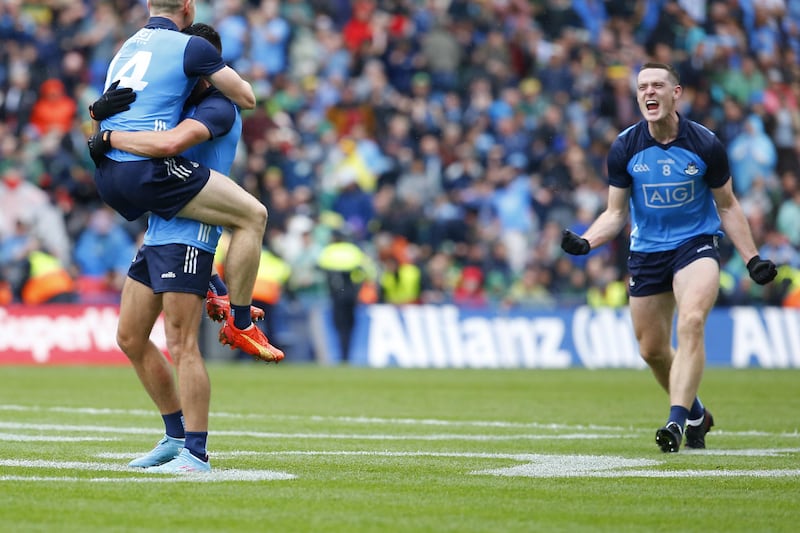“Sticks and stones may break my bones but words will never harm me”
Lámha suas, who has been told this before? Truth is though, words do hurt. They can leave a real sting and after-taste.
The David Beckham Netflix series is interesting. Yes, it is very much ‘brand Beckham’ as we watch the very many highlights of his career but one of the events stood out for me.
During the 1998 World Cup, Beckham was sent off in a round-of-16 game against Argentina. England would lose that match on penalties with Beckham being roundly blamed by everyone as the reason they lost.
The fall-out and reaction to his red card, after he kicked Diego Simone’s leg was astonishing.
The abuse and vitriol that was directed towards him, ranged from him being spat at on the street by strangers, to a multitude of headlines, radio, television and newspaper articles and broadcasters vilifying, denouncing and humiliating him.
It resulted in Beckham having to have a friend accompany him to the toilet on a night out as he couldn’t walk by himself for fear of what might happen to him.
Imagine, this was someone who played for Manchester United and had all the trappings and supposed protection of a professional footballer. It was also a different time, when there was a different emphasis on players’ personal security and mental health.
All this took place, however, before the advent of social media.
People may now not be able to get physically near players to tell them exactly what they think, but they can still get at them.
This time, though, it is often anonymous and from the privacy of their own home while online.
The GAA have launched a new online campaign called #intheirboots which asks people to think twice about posting disparaging comments online about players and officials.
One of the more powerful moments of the Beckham series were the interviews with his parents, Sandra and Ted.
You got a sense of what it was like for them, watching, reading and listening to the litany of abuse about their son.
Sandra mentioned about putting the former England manager Glen Hoddle on a hitlist for the things he said about David.
I imagine there are a lot of mothers out there who have a lengthy hitlist of people who have disrespected their sons and daughters.
There is a lack of empathy and understanding by people writing horrible things about other people online. In most cases, they don’t have the courage or decency to own what they have to say by putting their real name to it.
They don’t seem to realize or care how their actions impact on the people they are writing about.
Dessie Hutchinson spoke to me on GAAGO after Waterford’s win against Tipperary in the last round of the Munster Championship this year.
The Déise had lost every game in their Championship campaign until then and were under serious pressure and criticism for their performances.
Dessie was very emotional, speaking about how difficult the previous number of weeks had been.
How he didn’t want to leave the house or do anything and how challenging the level of criticism directed towards them as players were.
“It’s really tough” he said. “No-one goes out to play badly”.
Austin Gleeson decided to step back from Waterford inter-county hurling action next year and as a former Young Player of the Year and someone who has struggled with injuries, he has had his fair share of criticism online.
“It wasn’t the reason, I stepped back, being honest. At the end of the day, it is (GAA) an amateur sport where men and women give up
20-plus hours a week training on and off the field for little to nothing,” he told me.
“People can have their opinion 100 per cent, no arguments with that, but personal and nasty criticism is just not needed and is over the top.
“No one knows what people go through behind closed doors and certain comments could hurt someone a lot more than another person and it’s unnecessary.”
For families and loved ones, it’s hard to be at a game and hear awful comments about your son or daughter, brother, sister or partner.
I don’t know how the majority of them stay silent. They carry the burden of disrespect a lot heavier at times than their nearest and dearest do.
As Austin Gleeson said to me: “My family were the ones that I did worry about.
“They shouldn’t have to read and see something nasty on social media written about my team, team-mates and especially myself.”
Many of us can’t empathise with players because we haven’t walked in their shoes . Let’s face it, the vast majority of people will not be elite inter-county players.
Their loved ones know what that’s like because they have walked with them, held their hand, soothed them and picked them up along the way.
They are the embodiment of walking in their boots. I’d love to hear more from them.
I don’t think they should be silent and I believe more people can empathise with the families and what they go through than with the athletes.
As for my own style, I think I’d be more like Sandra Beckham. Perhaps not silent – and definitely dreaming up that hitlist...










